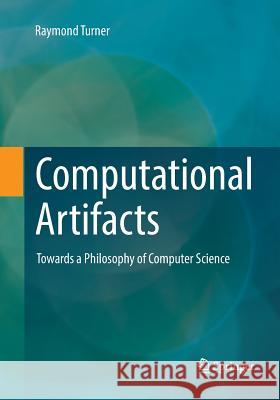Computational Artifacts: Towards a Philosophy of Computer Science » książka
topmenu
Computational Artifacts: Towards a Philosophy of Computer Science
ISBN-13: 9783662585597 / Angielski / Miękka / 2019 / 255 str.
Computational Artifacts: Towards a Philosophy of Computer Science
ISBN-13: 9783662585597 / Angielski / Miękka / 2019 / 255 str.
cena 653,90 zł
(netto: 622,76 VAT: 5%)
Najniższa cena z 30 dni: 650,86 zł
(netto: 622,76 VAT: 5%)
Najniższa cena z 30 dni: 650,86 zł
Termin realizacji zamówienia:
ok. 20 dni roboczych.
ok. 20 dni roboczych.
Darmowa dostawa!
Kategorie:
Kategorie BISAC:
Wydawca:
Springer
Seria wydawnicza:
Język:
Angielski
ISBN-13:
9783662585597
Rok wydania:
2019
Wydanie:
Softcover Repri
Numer serii:
000409363
Ilość stron:
255
Waga:
0.47 kg
Wymiary:
25.4 x 17.78 x 1.45
Oprawa:
Miękka
Wolumenów:
01
Dodatkowe informacje:
Wydanie ilustrowane











